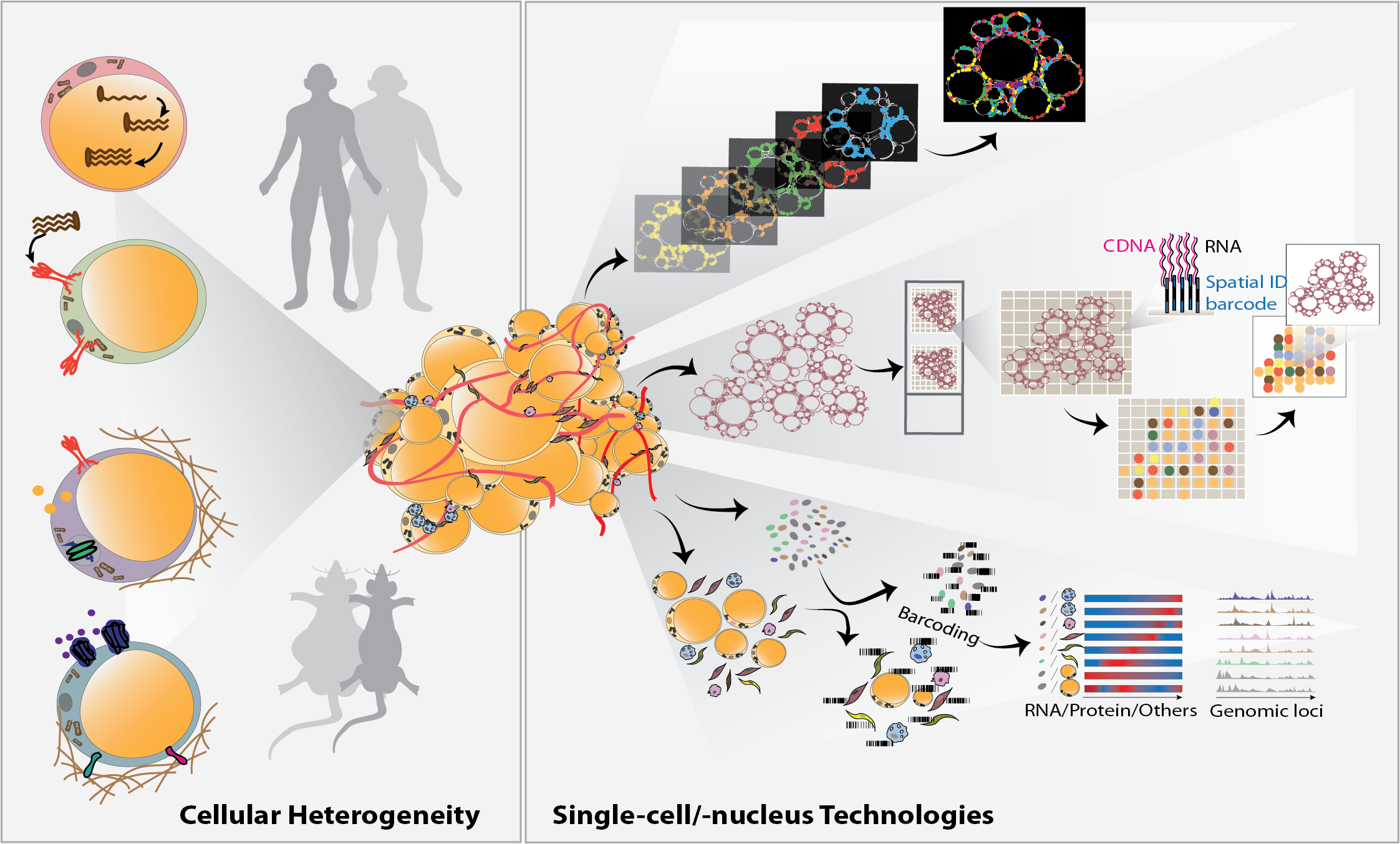Adipose tissue, the main fat storing organ of the body, exhibits a remarkable capacity to change in size and cellular composition in response to different physiological conditions, and impairment of this plasticity leads to systemic metabolic diseases. For example, the massive enlargement of adipose tissues in obesity is associated with substantial cellular and molecular changes in the adipose tissue that interfere with tissue function and are believed to be key drivers of obesity comorbidities such as cardiovascular diseases and diabetes.

The emergence of single-cell transcriptomics has rapidly transformed our understanding of the diverse array of cell types and cell states residing in adipose tissues and has provided insight into how transcriptional changes in individual cell types contribute to tissue plasticity. Here, ATLAS Postdoc Babukrishna Maniyadath and Center Director Susanne Mandrup with colleagues from UT-Southwestern-Texas, US present a comprehensive overview of the complex cellular atlas of adipose tissues focusing on the biological insight gained from single-cell and single-nuclei transcriptomics of mouse and human adipose tissues. They discuss how these studies can be used for mapping cellular transitions and crosstalk.